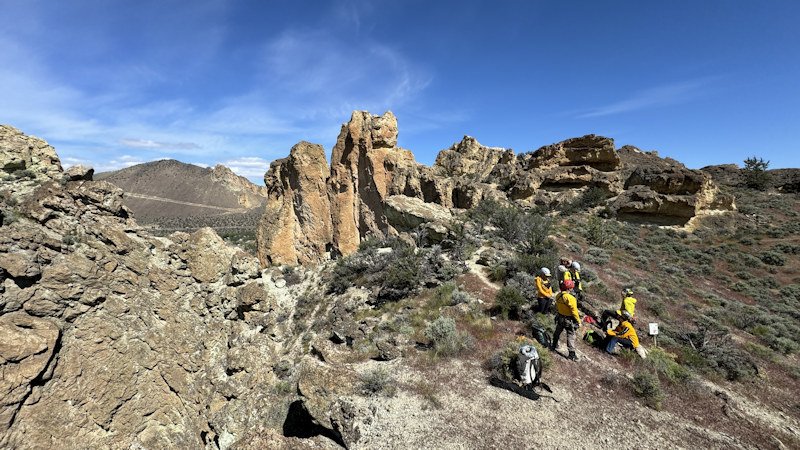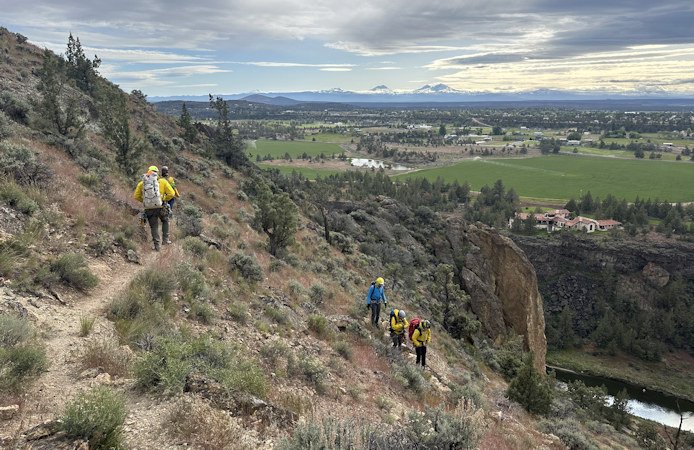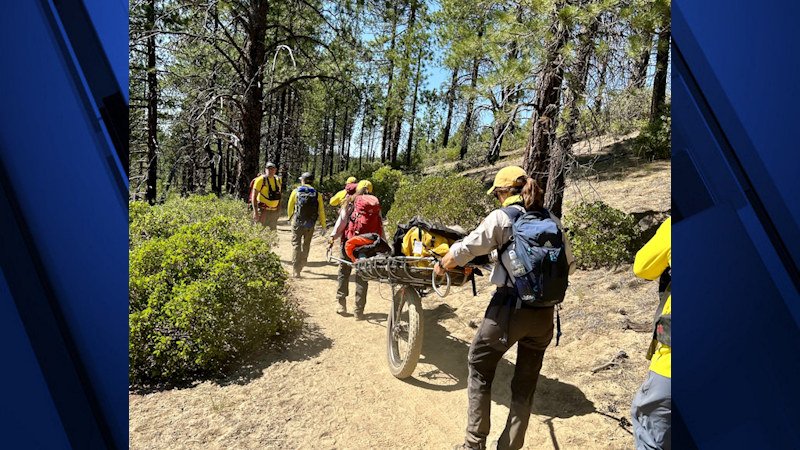Deschutes County Sheriff’s Search and Rescue off to a busy start for season, responding to a dozen calls for help in May



BEND, Ore. (KTVZ) -- We're still a few weeks from the official start of summer, but Deschutes County Sheriff’s Office Search and Rescue said Wednesday its volunteers have been very busy assisting county residents and visitors, with a dozen call-outs this month alone.
"Those who choose this area for its amazing outdoor recreation opportunities, and those who reside in the area eager to get out and explore," Sergeant Jason Wall said. "Our Search and Rescue volunteers are incredibly dedicated people who spend many hours of their time training, preparing, and assisting the citizens and visitors of Deschutes County."
So far this month, SAR volunteers have responded to 12 calls to assist the public. Those calls for service include but are not limited to injured motorcycle riders, lost or missing people and hikers, lost snowmobile riders, missing motorcycle riders, medical emergencies and injuries, stuck climbers and stuck motorists.
Search and Rescue has held 27 in-house trainings and exercises and attended three public events: The Special Olympics kickoff in Redmond, Sisters High School Outreach Program, and the Suttle Lake “Ida B. Wells” high school student Wilderness First Aid event.
The sheriff's office and Search and Rescue are asking the public to plan and prepare for the outdoor activities they wish to participate in. Here's some helpful information and things to take with you, and things to consider.
The 10 Essentials for Survival While Recreating in the Outdoors:
- NAVIGATION: A USGS or equal topo map, a properly declinated (14 degrees east locally) base plate compass, along with the knowledge of how to use them together. A simple GPS can also be quite useful if you’re familiar with how to use it and the batteries aren’t dead. A watch and fully charged cell phone should also be carried.
- SUN PROTECTION: Sunglasses, sunscreen, hat (for hot OR cold, summer or winter weather)
- INSULATION: The MOST important consideration: NO cotton clothing! Carry synthetic or wool layers, waterproof/windproof rain jacket/ pants; extra gloves/hat, and extra socks as required. Wear layers of clothing to adjust insulation to activity level and current weather. Stay dry to decrease the risk of hypothermia (which can be life-threatening).
- ILLUMINATION: Headlamp or flashlight, with extra batteries.
- FIRST-AID SUPPLIES: Basic supplies such as Band-Aids, gauze pads, triangular and compression bandages, etc. Include any medications you may currently be taking and a bee sting kit if you are allergic.
- FIRE: Waterproof matches, butane lighter or candle stubs, plus fire-starting materials (paste, etc.). Do NOT depend on making a fire in bad weather!
- REPAIR KIT/TOOLS: Multi-tool (Gerber®, Leatherman®, Swiss Army knife, etc.), Duct tape. Don’t carry what you don’t need.
- NUTRITION: High energy, no-cook foods, such as high-carb energy bars. Carry at least 200 calories for every hour you will be out.
- HYDRATION: Extra water; take at least (1) liter for short outings and at least 2.5 liters for all-day excursions. Remember that extra water will be needed for hot or cold weather, drink continuously during your outing. Don’t wait until you are dehydrated!
- EMERGENCY SHELTER: A Space blanket or bright plastic tarp (9’ x 12’) and a few large plastic trash bags. Bring something to insulate you from the ground, regardless of the time of year. You cannot dig a snow cave without a shovel, and you should not sit/sleep on snow without an insulating pad.
There are vast areas within Deschutes County where cell service is limited to the point that cell service is non-existent. Always carry alternative Satellite Communication Device such as Spot, Garmin In-Reach, Zoleo oe ACR Bivy Stick in case of an emergency without cell service.
Remember if you’re traveling in a vehicle, travel in pairs, carry the above items, and also bring with you tow straps / recovery rope, self-recovery gear (a winch / a come along tool) shovel, axe, and have a plan if you get stuck in the snow or mud. Always remain with your vehicle, until help arrives, Wall said.